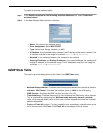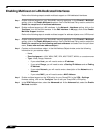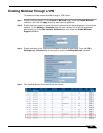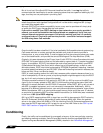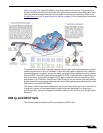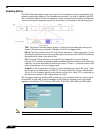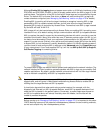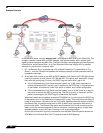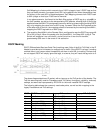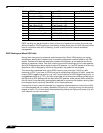
467
SonicOS Enhanced 4.0 Administrator Guide
CHAPTER 45
Chapter 45: Managing Quality of Service
Firewall > QoS Mapping
Quality of Service (QoS) refers to a diversity of methods intended to provide predictable
network behavior and performance. This sort of predictability is vital to certain types of
applications, such as Voice over IP (VoIP), multimedia content, or business-critical applications
such as order or credit-card processing. No amount of bandwidth can provide this sort of
predictability, because any amount of bandwidth will ultimately be used to its capacity at some
point in a network. Only QoS, when configured and implemented correctly, can properly
manage traffic, and guarantee the desired levels of network service.
This section contains the following subsections:
• “Classification” section on page 467
• “Marking” section on page 468
• “Conditioning” section on page 468
Classification
Classification is necessary as a first step so that traffic in need of management can be
identified. SonicOS Enhanced uses Access Rules as the interface to classification of traffic.
This provides fine controls using combinations of Address Object, Service Object, and
Schedule Object elements, allowing for classification criteria as general as all HTTP traffic and
as specific as SSH traffic from hostA to serverB on Wednesdays at 2:12am.
SonicOS Enhanced has the ability to recognize, map, modify, and generate the industry-
standard external CoS designators, DSCP and 802.1p (refer to the “802.1p and DSCP QoS”
section on page 469).
Once identified, or classified, it can be managed. Management can be performed internally by
SonicOS’ BWM, which is perfectly effective as long as the network is a fully contained
autonomous system. Once external or intermediate elements are introduced, such as foreign
network infrastructures with unknown configurations, or other hosts contending for bandwidth
(e.g. the Internet) the ability to offer guarantees and predictability are diminished. In other
words, as long as the endpoints of the network and everything in between are within your
management, BWM will work exactly as configured. Once external entities are introduced, the
precision and efficacy of BWM configurations can begin to degrade.



